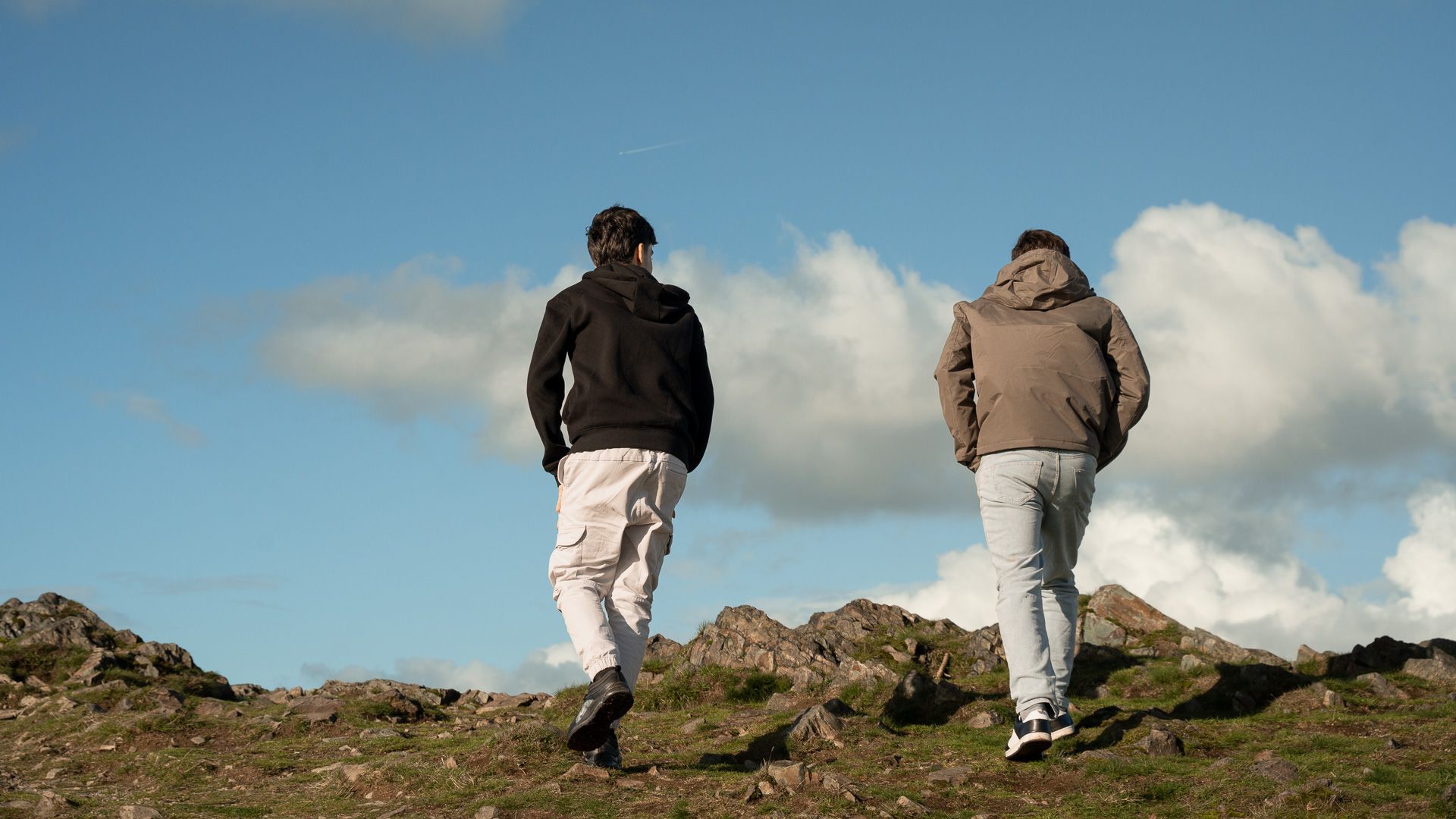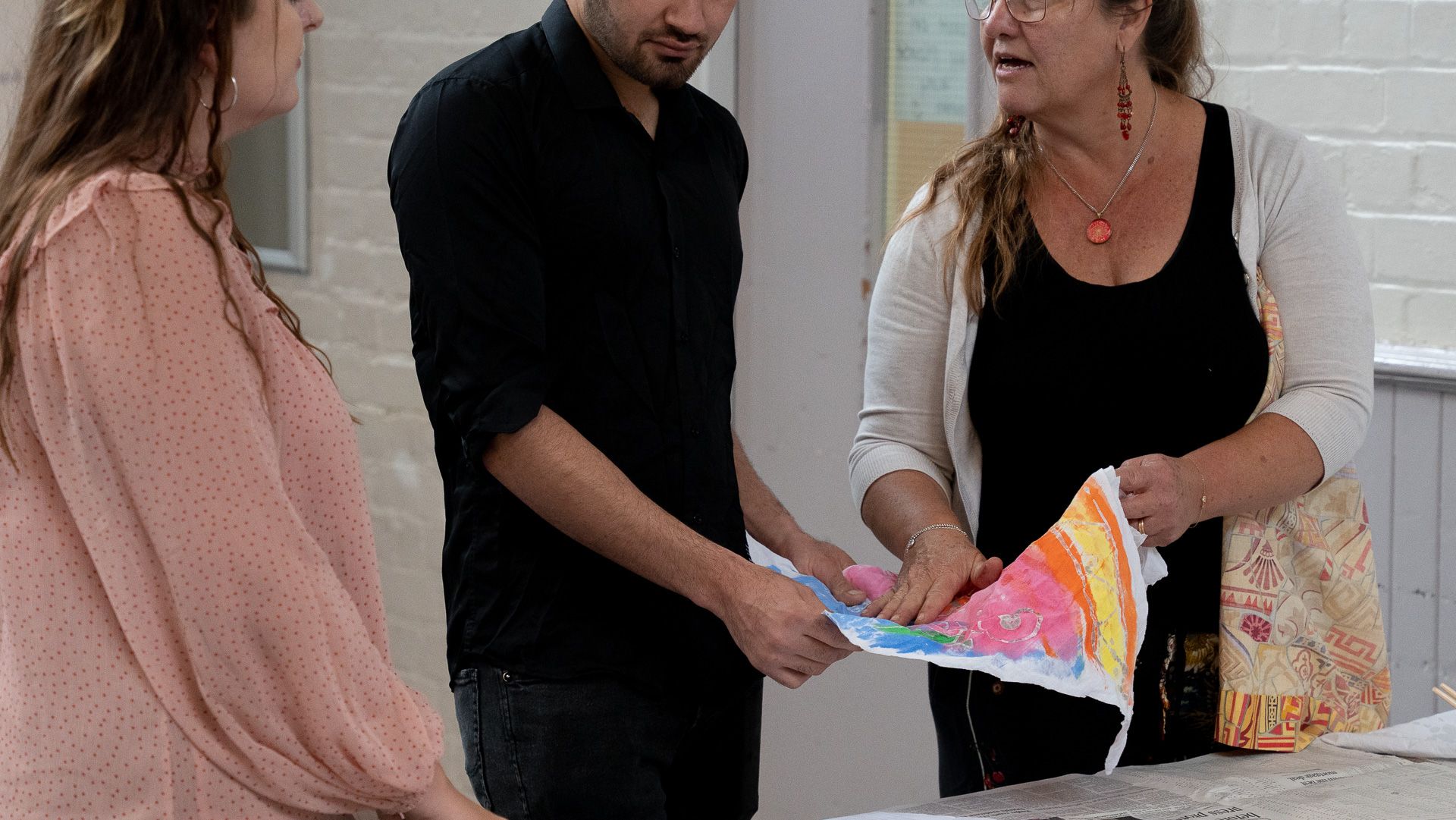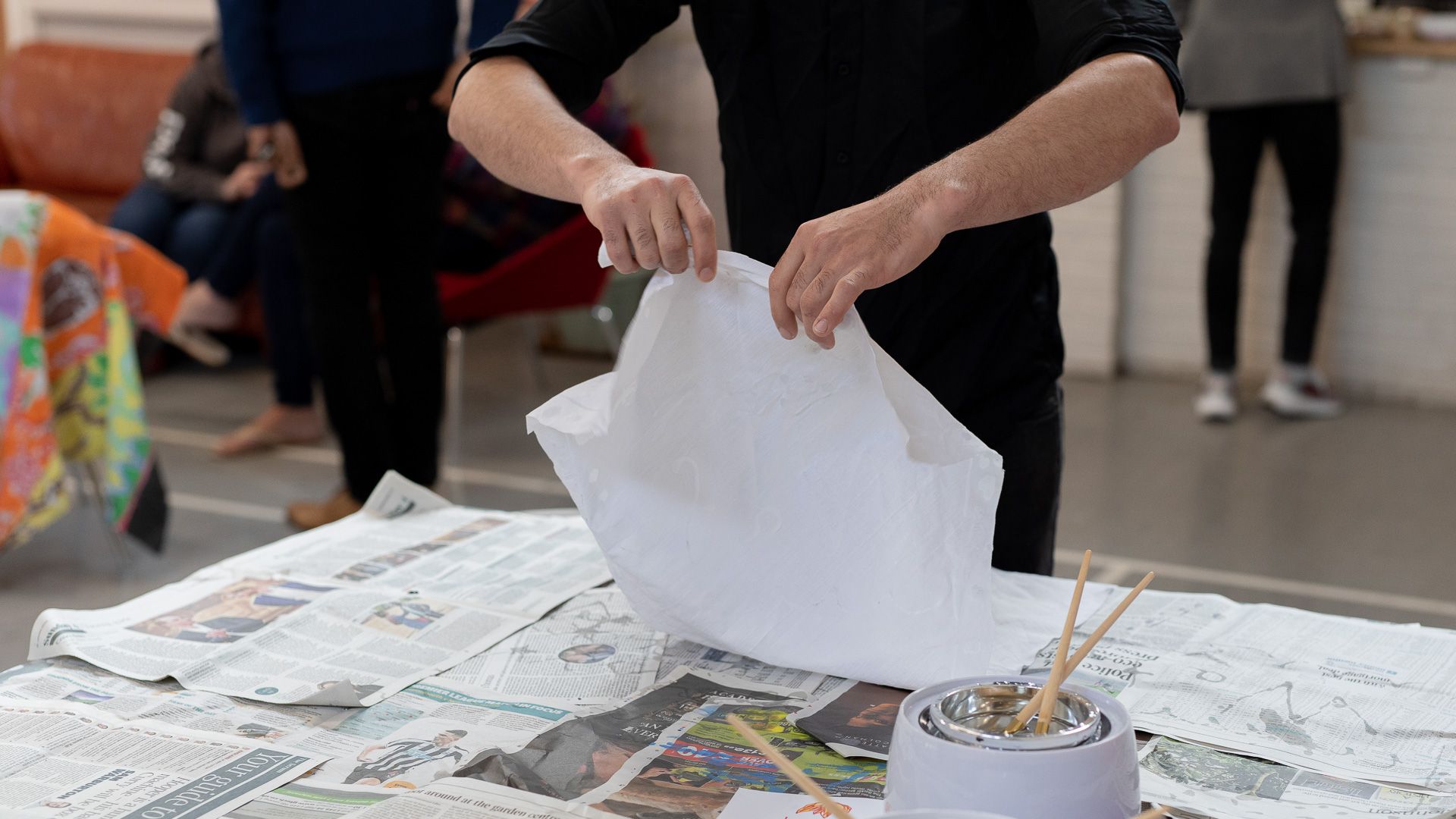How it works
Mental Health
Therapy is an extremely beneficial tool for the child refugees supported by Baca. Where language is a barrier, or when feelings and memories are hard to express, being introduced to art, dance or drama can be important in facilitating communication. But more than this, these therapies enable the young person to do something for themselves creating something unique and personal, to express their own imagination, their thoughts and their identity at a time when they are faced with the challenge of a new country, new language and new culture. It can allow stories to be told and witnessed, provide a space for healing, build resilience and a sense of being listened too and that their experiences are important.
Art Therapy
Our amazing art therapy room provides a safe and private space where the young people at Baca can learn how art and creativity can help with their mental health. They enjoy experimenting with lots of different techniques, develop skills to use in the future and even put their work on show if they choose to! In both Loughborough and Cambridge the young people we support are all offered the opportunity for one-to-one sessions or group therapy sessions for either a short course or long-term support through in-house trained art, dance and drama therapists, providing space for each young person to heal.

Days 1-2
Focus: Comfort and encouragement
Upon the young person's arrival, they receive a warm and friendly welcome. They are given the space to rest and recover from their journey.

Weeks 1-2
Focus: Creating a sense of belonging and implementing daily structure
During the first two weeks, our efforts centre around creating a strong sense of belonging by connecting the young people with the broader community of Baca's young people. Through workshops and English, maths and ICT lessons at Baca College, they can meet peers from similar cultural backgrounds, reassuring them that they are not alone.
Starting lessons and structured activities promptly provide a foundation for the young person's daily routine. They are introduced to the art therapy room and given an explanation of the role of the therapist at Baca. They know the therapy room is a safe space they can go if they want to talk or express their feelings.
Months 1-4
Focus: Identifying specific needs and building resilience
All support staff are equipped with mental health awareness training. Throughout lessons, workshops, and support sessions, there is a constant focus on recognising signs of potential problems.
Young people actively participate in therapeutic art sessions, enabling them to start processing and sharing their experiences non-verbally. Physical workshops complement this therapeutic support.
Semi-Independence & Move to Independence
Focus: Ongoing support through extracurricular activities and skills development, building resilience and accessing specialist services.
Art support remains available, offered in both one-on-one and group settings. Various activities, such as weekly sports sessions, offer different avenues for channelling energy and relieving tension.
In cases where specific needs are identified, we provide ongoing assistance to access specialist services, including CAHMS for counselling or other specialised services such as bereavement counselling.
